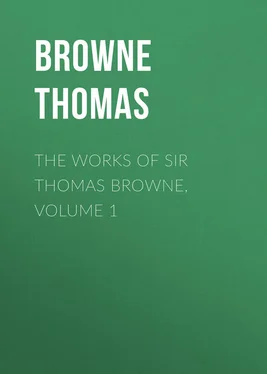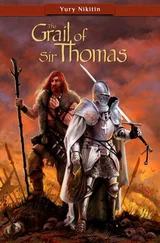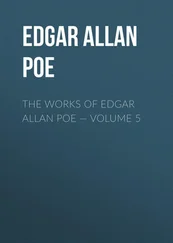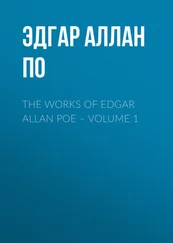Thomas Browne - The Works of Sir Thomas Browne, Volume 1
Здесь есть возможность читать онлайн «Thomas Browne - The Works of Sir Thomas Browne, Volume 1» — ознакомительный отрывок электронной книги совершенно бесплатно, а после прочтения отрывка купить полную версию. В некоторых случаях можно слушать аудио, скачать через торрент в формате fb2 и присутствует краткое содержание. ISBN: , Жанр: foreign_antique, foreign_prose, на английском языке. Описание произведения, (предисловие) а так же отзывы посетителей доступны на портале библиотеки ЛибКат.
- Название:The Works of Sir Thomas Browne, Volume 1
- Автор:
- Жанр:
- Год:неизвестен
- ISBN:http://www.gutenberg.org/ebooks/39960
- Рейтинг книги:5 / 5. Голосов: 1
-
Избранное:Добавить в избранное
- Отзывы:
-
Ваша оценка:
- 100
- 1
- 2
- 3
- 4
- 5
The Works of Sir Thomas Browne, Volume 1: краткое содержание, описание и аннотация
Предлагаем к чтению аннотацию, описание, краткое содержание или предисловие (зависит от того, что написал сам автор книги «The Works of Sir Thomas Browne, Volume 1»). Если вы не нашли необходимую информацию о книге — напишите в комментариях, мы постараемся отыскать её.
The Works of Sir Thomas Browne, Volume 1 — читать онлайн ознакомительный отрывок
Ниже представлен текст книги, разбитый по страницам. Система сохранения места последней прочитанной страницы, позволяет с удобством читать онлайн бесплатно книгу «The Works of Sir Thomas Browne, Volume 1», без необходимости каждый раз заново искать на чём Вы остановились. Поставьте закладку, и сможете в любой момент перейти на страницу, на которой закончили чтение.
Интервал:
Закладка:
SECT.13
That other Attribute wherewith I recreate my devotion, is his Wisdom, in which I am happy; and for the contemplation of this only, do not repent me that I was bred in the way of Study: The advantage I have of the vulgar, with the content and happiness I conceive therein, is an ample recompence for all my endeavours, in what part of knowledge soever. Wisdom is his most beauteous Attribute, no man can attain unto it, yet Solomon pleased God when he desired it. He is wise, because he knows all things; and he knoweth all things, because he made them all: but his greatest knowledge is in comprehending that he made not, that is, himself. And this is also the greatest knowledge in man. For this do I honour my own profession, and embrace the Counsel even of the Devil himself: had he read such a Lecture in Paradise as he did at Delphos , 10we had better known our selves; nor had we stood in fear to know him. I know he is wise in all, wonderful in what we conceive, but far more in what we comprehend not; for we behold him but asquint, upon reflex or shadow; our understanding is dimmer than Moses Eye; we are ignorant of the back-parts or lower side of his Divinity; therefore to prie into the maze of his Counsels is not only folly in man, but presumption even in Angels; like us, they are his Servants, not his Senators; he holds no Counsel, but that mystical one of the Trinity, wherein though there be three Persons, there is but one mind that decrees without Contradiction: nor needs he any; his actions are not begot with deliberation, his Wisdom naturally knows what's best; his intellect stands ready fraught with the superlative and purest Idea's of goodness; consultation and election, which are two motions in us, make but one in him; his actions springing from his power at the first touch of his will. These are Contemplations Metaphysical: my humble speculations have another Method, and are content to trace and discover those expressions he hath left in his Creatures, and the obvious effects of Nature; there is no danger to profound these mysteries, no sanctum sanctorum in Philosophy: the World was made to be inhabited by Beasts, but studied and contemplated by Man: 'tis the Debt of our Reason we owe unto God, and the homage we pay for not being Beasts; without this, the World is still as though it had not been, or as it was before the sixth day, when as yet there was not a Creature that could conceive, or say there was a World. The wisdom of God receives small honour from those vulgar Heads that rudely stare about, and with a gross rusticity admire his works; those highly magnifie him, whose judicious inquiry into His Acts, and deliberate research into His Creatures, return the duty of a devout and learned admiration. Therefore,
Search while thou wilt, and let thy reason go,
To ransome truth, even to th' Abyss below;
Rally the scattered Causes; and that line
Which Nature twists, be able to untwine
It is thy Makers will, for unto none,
But unto reason can he e'er be known.
The Devils do know Thee, but those damn'd Meteors
Build not thy Glory, but confound thy Creatures.
Teach my indeavours so thy works to read,
That learning them in thee, I may proceed.
Give thou my reason that instructive flight,
Whose weary wings may on thy hands still light.
Teach me to soar aloft, yet ever so,
When neer the Sun, to stoop again below.
Thus shall my humble Feathers safely hover,
And, though near Earth, more than the Heavens discover
And then at last, when homeward I shall drive,
Rich with the Spoils of nature to my hive,
There will I sit like that industrious Flie,
Buzzing thy praises, which shall never die,
Till death abrupts them, and succeeding Glory
Bid me go on in a more lasting story.
And this is almost all wherein an humble Creature may endeavour to requite and some way to retribute unto his Creator: for if not he that saith, Lord, Lord , but he that doth the will of his Father, shall be saved ; certainly our wills must be our performances, and our intents make out our Actions; otherwise our pious labours shall find anxiety in our Graves, and our best endeavours not hope, but fear a resurrection.
SECT.14
There is but one first cause, and four second causes of all things; some are without efficient, as God; others without matter, as Angels; some without form, as the first matter: but every Essence created or uncreated, hath its final cause, and some positive end both of its Essence and Operation; this is the cause I grope after in the works of Nature; on this hangs the providence of God: to raise so beauteous a structure as the World and the Creatures thereof, was but his Art; but their sundry and divided operations, with their predestinated ends, are from the Treasure of his wisdom. In the causes, nature, and affections of the Eclipses of the Sun and Moon, there is most excellent speculation; but to profound farther, and to contemplate a reason why his providence hath so disposed and ordered their motions in that vast circle as to conjoyn and obscure each other, is a sweeter piece of Reason, and a diviner point of Philosophy; therefore sometimes, and in some things, there appears to me as much Divinity in Galen his books De Usu Partium , as in Suarez Metaphysicks: Had Aristotle been as curious in the enquiry of this cause as he was of the other, he had not left behind him an imperfect piece of Philosophy, but an absolute tract of Divinity.
SECT.15
Natura nihil aget frustra , is the only indisputed Axiome in Philosophy; there are no Grotesques in nature; not any thing framed to fill up empty Cantons, and unnecessary spaces: in the most imperfect Creatures, and such as were not preserved in the Ark, but having their Seeds and Principles in the womb of Nature, are every where, where the power of the Sun is; in these is the Wisdom of his hand discovered. Out of this rank Solomon chose the object of his admiration; indeed what reason may not go to School to the wisdom of Bees, Ants, and Spiders? what wise hand teacheth them to do what reason cannot teach us? ruder heads stand amazed at those prodigious pieces of Nature, Whales, Elephants, Dromidaries and Camels; these, I confess, are the Colossus and Majestick pieces of her hand: but in these narrow Engines there is more curious Mathematicks; and the civility of these little Citizens, more neatly sets forth the Wisdom of their Maker. Who admires not Regio-Montanus his Fly beyond his Eagle, or wonders not more at the operation of two Souls in those little Bodies, than but one in the Trunk of a Cedar? I could never content my contemplation with those general pieces of wonder, the Flux and Reflux of the Sea, the increase of Nile , the conversion of the Needle to the North; and have studied to match and parallel those in the more obvious and neglected pieces of Nature, which without further trouble I can do in the Cosmography of my self; we carry with us the wonders we seek without us: There is all Africa and her prodigies in us; we are that bold and adventurous piece of nature, which he that studies wisely learns in a compendium what others labour at in a divided piece and endless volume.
SECT.16
Thus there are two Books from which I collect my Divinity; besides that written one of God, another of his servant Nature, that universal and publick Manuscript, that lies expans'd unto the Eyes of all, those that never saw him in the one, have discovered him in the other: this was the Scripture and Theology of the Heathens: the natural motion of the Sun made them more admire him, than its supernatural station did the Children of Israel ; the ordinary effects of nature wrought more admiration in them than in the other all his Miracles; surely the Heathens knew better how to joyn and read these mystical Letters than we Christians, who cast a more careless Eye on these common Hieroglyphicks, and disdain to suck Divinity from the flowers of Nature. Nor do I so forget God as to adore the name of Nature; which I define not with the Schools, to be the principle of motion and rest, but that streight and regular line, that settled and constant course the Wisdom of God hath ordained the actions of His creatures, according to their several kinds. To make a revolution every day, is the Nature of the Sun, because of that necessary course which God hath ordained it, from which it cannot swerve but by a faculty from that voice which first did give it motion. Now this course of Nature God seldome alters or perverts, but like an excellent Artist hath so contrived his work, that with the self same instrument, without a new creation, he may effect his obscurest designs. Thus he sweetneth the Water with a Word, preserveth the Creatures in the Ark, which the blast of his mouth might have as easily created; for God is like a skilful Geometrician, who when more easily and with one stroak of his Compass he might describe or divide a right line, had yet rather do this in a circle or longer way; according to the constituted and fore-laid principles of his Art: yet this rule of his he doth sometimes pervert, to acquaint the World with his Prerogative, lest the arrogancy of our reason should question his power, and conclude he could not; and thus I call the effects of Nature the works of God, whose hand and instrument she only is; and therefore to ascribe his actions unto her, is to devolve the honour of the principal agent upon the instrument; which if with reason we may do, then let our hammers rise up and boast they have built our houses, and our pens receive the honour of our writings. I hold there is a general beauty in the works of God, and therefore no deformity in any kind or species of creature whatsoever: I cannot tell by what Logick we call a Toad , a Bear , or an Elephant ugly, they being created in those outward shapes and figures which best express the actions of their inward forms. And having past that general Visitation of God, who saw that all that he had made was good, that is, conformable to his Will, which abhors deformity, and is the rule of order and beauty; there is no deformity but in Monstrosity; wherein, notwithstanding, there is a kind of Beauty. Nature so ingeniously contriving the irregular parts, as they become sometimes more remarkable than the principal Fabrick. To speak yet more narrowly, there was never any thing ugly or mis-shapen, but the Chaos; wherein, notwithstanding, to speak strictly, there was no deformity, because no form; nor was it yet impregnant by the voice of God; now Nature was not at variance with Art, nor Art with Nature, they being both servants of his providence: Art is the perfection of Nature: were the World now as it was the sixth day, there were yet a Chaos: Nature hath made one World, and Art another. In brief, all things are artificial; for Nature is the Art of God.
Читать дальшеИнтервал:
Закладка:
Похожие книги на «The Works of Sir Thomas Browne, Volume 1»
Представляем Вашему вниманию похожие книги на «The Works of Sir Thomas Browne, Volume 1» списком для выбора. Мы отобрали схожую по названию и смыслу литературу в надежде предоставить читателям больше вариантов отыскать новые, интересные, ещё непрочитанные произведения.
Обсуждение, отзывы о книге «The Works of Sir Thomas Browne, Volume 1» и просто собственные мнения читателей. Оставьте ваши комментарии, напишите, что Вы думаете о произведении, его смысле или главных героях. Укажите что конкретно понравилось, а что нет, и почему Вы так считаете.












